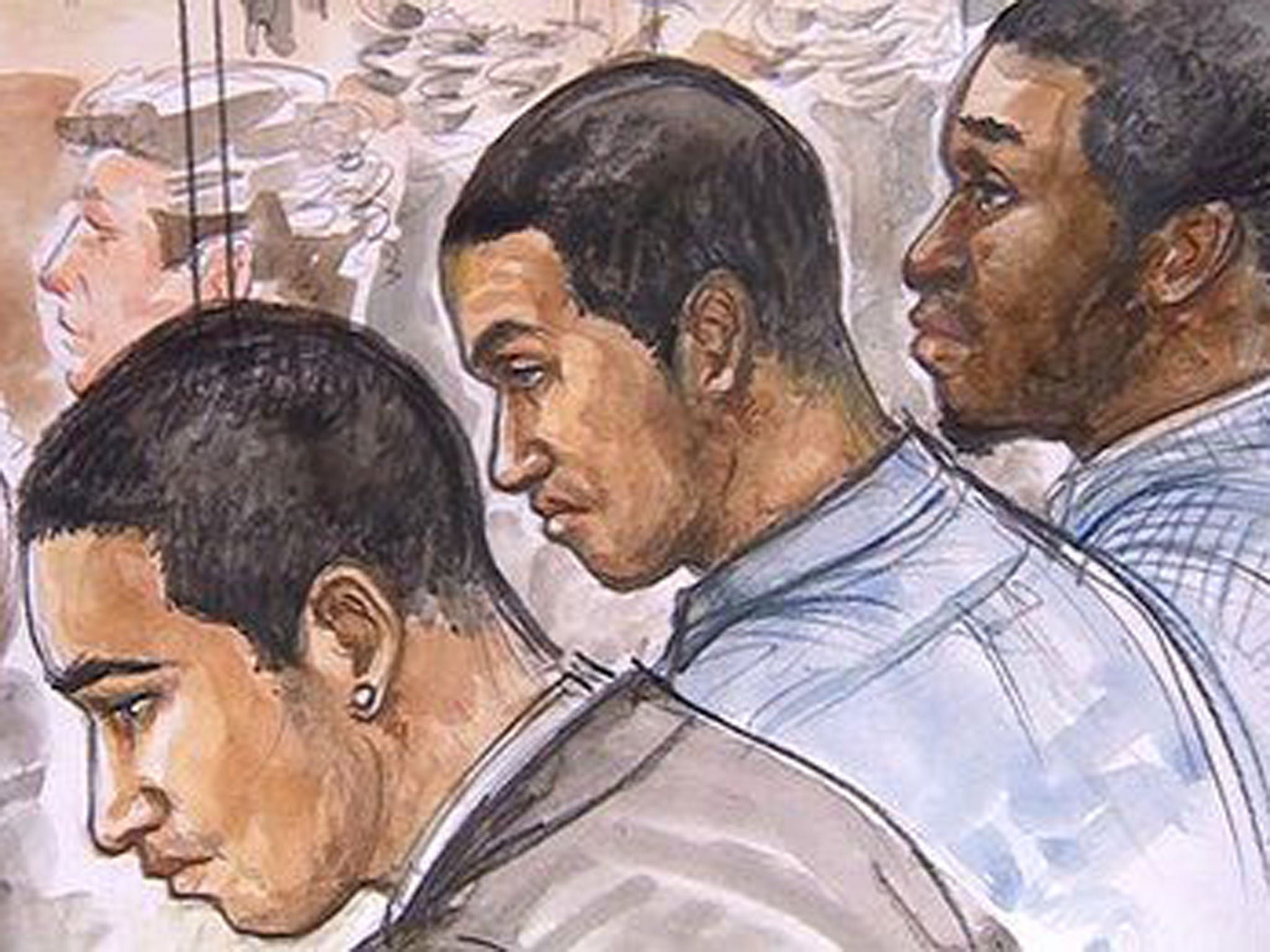Revealed: how 300-year-old duellist law is jailing hundreds for 'joint enterprise' killings

Hundreds of people are convicted of murder or manslaughter every year in England and Wales even though they were not directly responsible for the crime, it is revealed today.
Research by the Bureau of Investigative Journalism shows that in the past eight years nearly one in five of all homicide cases have been prosecuted under a 300-year-old legal doctrine that allows someone to be convicted just for being present at the scene of the crime or being associated with the killer.
The use of so-called “joint enterprise” prosecutions – initially designed to deter people from supporting duellists – has become an increasingly important tool in tackling gang murders, as it allows a group to be convicted of an offence regardless of which member committed it.
But senior legal figures are now warning that the number of cases being dealt with by the courts under joint enterprise may be leading to a rise in miscarriages of justice.
They have called for the law to be re-examined and updated to prevent wrongful conviction of people who may have been present at the scene of a crime but played no part in it.
The Bureau’s figures show that between 2005 and 2013, 4,590 people were prosecuted for homicides involving two or more defendants – a definition the Crown Prosecution Service suggests is a clear indication of the use of joint enterprise. Of those, 1,853 were prosecuted for homicides that involved four or more defendants.
In the past two years, the CPS prosecuted 260 cases of murder or manslaughter with multiple defendants, requiring 893 defendants in the dock.
The rate at which joint enterprise cases result in an appeal is also rising. In 2008 11 per cent of published Court of Appeal rulings dealt with convictions involving an element of joint enterprise. In 2013 the rate had increased to 22 per cent.
Senior legal figures have suggested that joint enterprise be reviewed. Lord Phillips, the former Lord Chief Justice, told the Bureau that reform was necessary because joint enterprise was “capable of producing injustice, undoubtedly”.
“You have to rely on juries and on the judge to more or less say who was involved and how. There is huge discretion on how it is used by prosecutors,” he said.
“It’s very complicated for juries and it falls to the judge to do his best to explain things to the jury. Some of the scenes of group violence are so horrifying they can leave a jury willing to convict anyone who was there.”
Professor David Ormerod, the Law Commissioner who advises the Government on criminal legal reform, said: “Unless the law is clear – and I’m not certain it is – then you increase risk of injustice... It’s possible, because of the complexity of the law, that it has been applied incorrectly.”
Damian Green, the Justice minister, said there were no plans to change the law: “Joint enterprise law has enabled some of the most serious offenders to be brought to justice. It ensures that if a crime is committed by two or more people, all those involved can potentially be charged and convicted of that offence.”
Text trap: 14 months on remand before acquittal
A simple text message led to 20-year-old Ijah Lavelle Moore spending 14 months remanded in custody for his alleged role in a “joint enterprise”, before he was eventually acquitted.
He was at home in Nottingham when a friend, Cameron Cashin, texted him in the early hours, saying “come now man”.
Fifteen minutes earlier, Malakai McKenzie, 19, was shot dead while sitting in a car with his brother and two cousins outside a pub a mile away. Police, who suspected Mr Lavelle Moore had a role in the shooting, charged him with murder.
The case against him was based on his communications with Cashin that night and interpretation of that text.
The prosecution case was that Cashin was summoning Mr Lavelle Moore and Malcolm Francis after the murder as his trusted lieutenants. The prosecution produced photos of Mr Lavelle Moore celebrating his 20th birthday a few weeks earlier, posing with Cashin. “This was meant to show that we were part of a gang, not just a bunch of lads on my birthday,” he said.
Mr Lavelle Moore spent 14 months on remand awaiting trial. During the court proceedings, his mother was diagnosed with bowel cancer. The disease progressed quickly and she died. Nine days after her death, he was acquitted of all charges.
The judge told the prosecution: “There is a real hurdle in the chain of events … All we have is a chain of inferences and suspicious activity. [There is] no evidence of presence of Malcolm Francis and Ijah Lavelle Moore at Meridien Court, or Bagthorpe Close… [they are] not on any CCTV. The image of the group on Ijah Lavelle Moore’s birthday is an inference.”
Bookmark popover
Removed from bookmarks